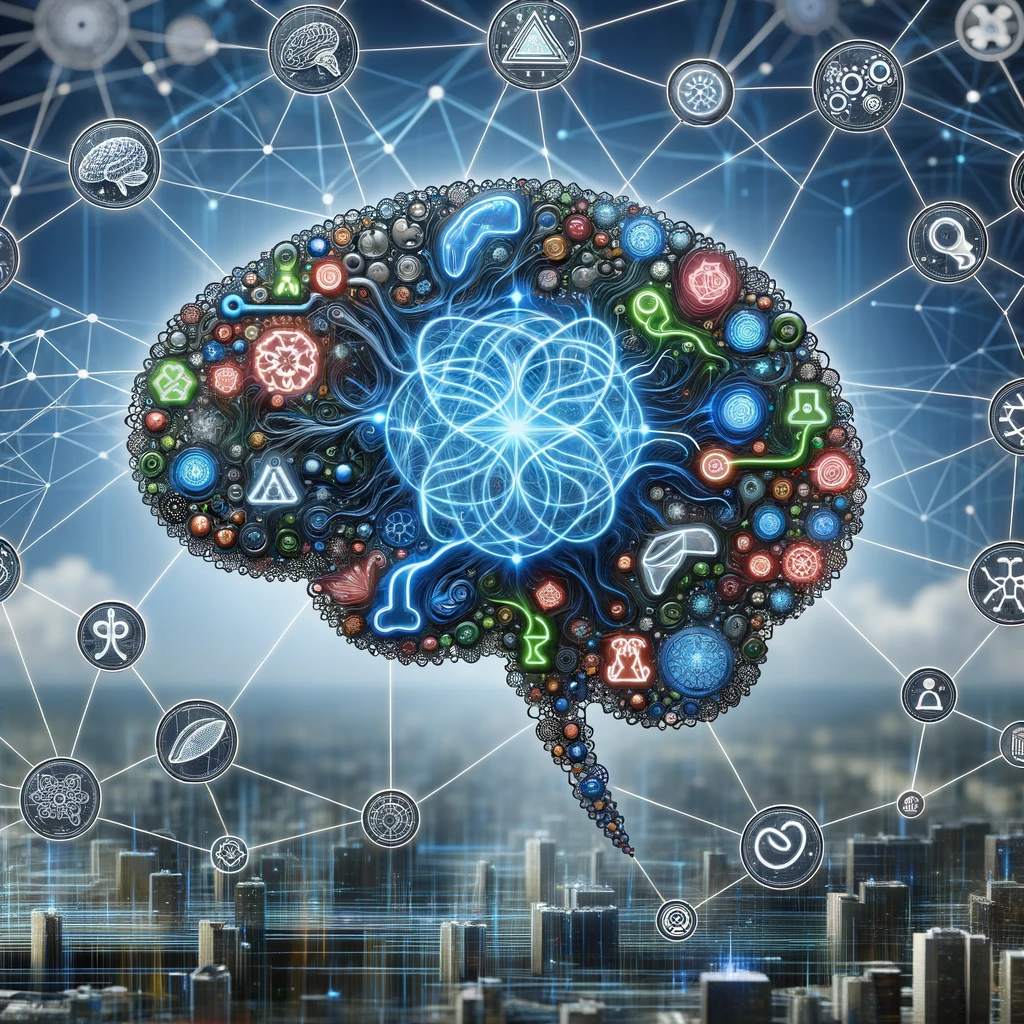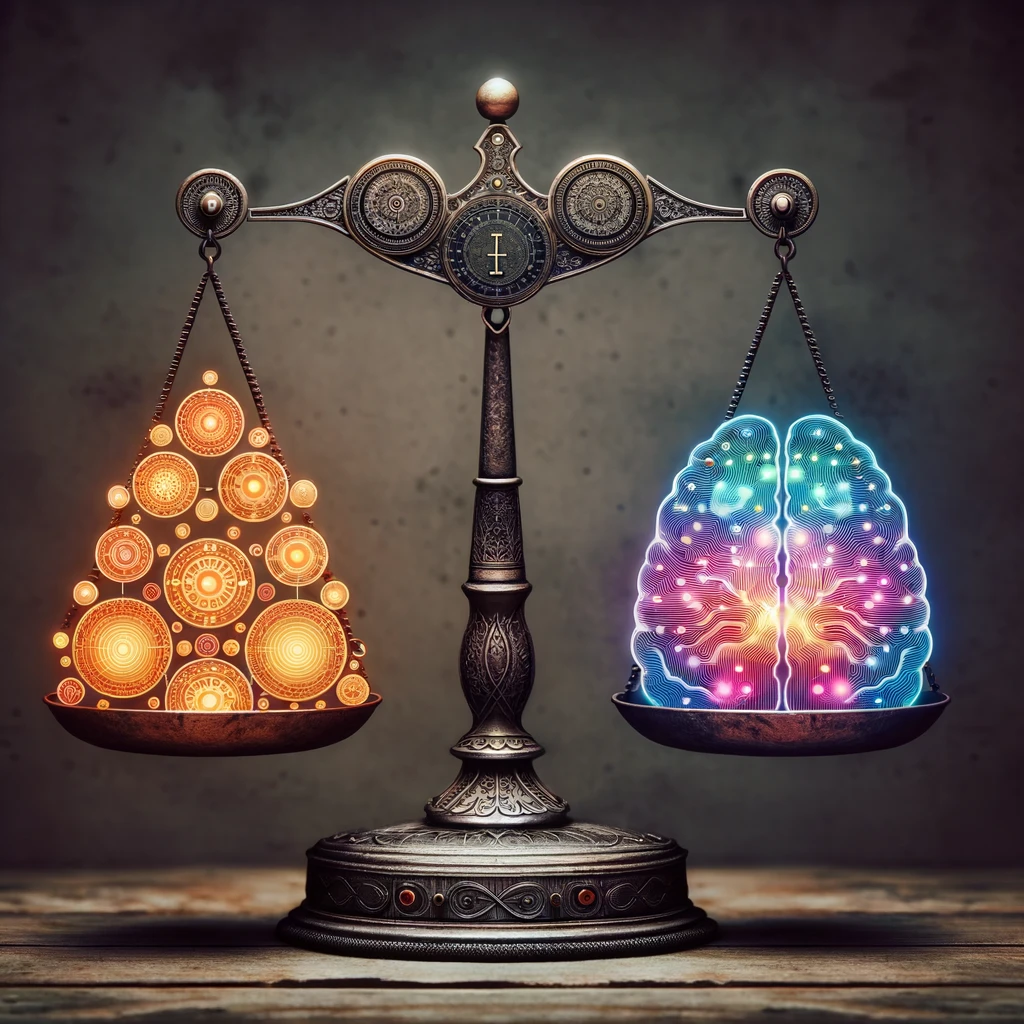Artificial Intelligence (AI) has been making waves in various sectors, and the field of mental health is no exception. One of the most groundbreaking advancements in this area is the use of AI to predict schizophrenia through hidden linguistic patterns. This innovative approach is not just a scientific breakthrough; it’s a beacon of hope for millions affected by this complex mental health condition.

Understanding Schizophrenia and AI’s Role
Schizophrenia is a severe mental disorder affecting how a person thinks, feels, and behaves. People with schizophrenia may seem like they have lost touch with reality, which can be distressing for both them and their loved ones. The traditional diagnosis process is subjective and relies heavily on patient interviews and the clinician’s observations, leaving room for human error and bias.
Enter AI, with its ability to analyze vast amounts of data at incredible speeds. Scientists and researchers have started to tap into AI’s potential to identify subtle linguistic patterns that are often overlooked in schizophrenia patients. This is where the magic happens. AI digs deep into the nuances of language, picking up on inconsistencies and patterns that escape the human ear.
The Science Behind the Innovation
How Does It Work?
AI algorithms are trained on extensive text data from the internet, learning to understand and process language in a way that’s similar to humans. When applied to speech analysis, these algorithms can detect anomalies and patterns in the way people with schizophrenia use language. For instance, they might have a unique way of constructing sentences or using words that, when analyzed by AI, can serve as reliable indicators of the condition.
The Power of Predictive Analysis
What sets this approach apart is its predictive nature. Instead of relying solely on observable symptoms, AI delves into the linguistic intricacies of speech, offering a more objective and data-driven basis for diagnosis. This is a game-changer, especially in the early stages of the condition when symptoms might not be as apparent.

Transforming Diagnosis and Treatment
A More Accurate Diagnosis
The ability of AI to predict schizophrenia through hidden linguistic patterns holds the promise of more accurate and timely diagnoses. This is crucial in a field where early intervention can make a significant difference in the patient’s quality of life. With AI, clinicians are equipped with a powerful tool that adds an extra layer of precision to the diagnostic process.
The Future of Mental Health Care
Looking ahead, the integration of AI in mental health care is set to revolutionize the field. We are on the cusp of a new era where technology and healthcare converge, offering innovative solutions to age-old challenges. The use of AI in predicting schizophrenia is just the tip of the iceberg, with endless possibilities for enhancing patient care and treatment outcomes.
The Benefits of AI in Schizophrenia Diagnosis
Enhancing Understanding and Awareness
One of the most significant benefits of this AI-driven approach is the potential to enhance our understanding of schizophrenia. By analyzing linguistic patterns, we can gain insights into the cognitive processes of those affected by the condition, shedding light on the intricate workings of the brain.

A Step Towards Personalized Medicine
The predictive nature of AI also paves the way for more personalized treatment plans. With a more accurate diagnosis, clinicians can tailor interventions to suit the individual needs of each patient, ensuring that they receive the most effective care.
Breaking Down Stigma
As we demystify schizophrenia through technology and research, we also contribute to breaking down the stigma surrounding mental health conditions. Increased awareness and understanding lead to empathy, creating a more supportive environment for those affected.
Real-Life Applications and Case Studies
To understand the real-world impact of AI in predicting schizophrenia, let’s take a look at some case studies and applications.
https://www.sciencedirect.com/science/article/abs/pii/S0010482522003468
These examples highlight the practicality and efficacy of AI in transforming the diagnosis and treatment of schizophrenia, offering a glimpse into the future of mental health care.
The Road Ahead
As we embrace the potential of AI in mental health care, it’s important to acknowledge the challenges and ethical considerations that come with it. Ensuring the privacy and security of patient data, addressing potential biases in AI algorithms, and maintaining the human touch in healthcare are all crucial factors to consider.
Despite these challenges, the future of AI in predicting schizophrenia and transforming mental health care looks promising. With ongoing research and development, we are paving the way for a future where mental health conditions are diagnosed and treated with unparalleled precision and care.
External sources
Embracing Technology in Mental Health
The integration of AI in mental health signifies a monumental shift in how we approach and understand mental disorders. Schizophrenia, with its complex nature and varied symptoms, has always been a challenging condition to diagnose and treat. However, with AI’s ability to analyze hidden linguistic patterns, we are now armed with a tool that brings precision and objectivity to the table.
Bridging the Gap in Mental Health Diagnosis
Traditionally, the diagnosis of schizophrenia has relied heavily on subjective assessments and patient interviews. This has often led to delayed diagnosis and, consequently, delayed treatment. AI’s role in predicting schizophrenia through linguistic analysis is bridging this gap, ensuring that individuals get the help they need when they need it.
A New Horizon in Psychiatric Research
The implications of this technology extend far beyond the clinic. In the realm of psychiatric research, AI is opening up new avenues for exploration and discovery. By analyzing linguistic patterns, researchers can delve deeper into the cognitive and neurological aspects of schizophrenia, paving the way for breakthroughs in our understanding of the condition.
Frequently Asked Questions
How Accurate is AI in Predicting Schizophrenia?
The accuracy of AI in predicting schizophrenia is continually improving as the technology evolves and more data becomes available for analysis. Current studies and applications have shown promising results, indicating that AI could play a significant role in future diagnostic processes.
Can AI Replace Human Clinicians in Diagnosing Schizophrenia?
While AI is a powerful tool, it is not meant to replace human clinicians. Instead, it serves as a supplementary resource, enhancing the diagnostic process and providing additional data for clinicians to consider.
What Are the Ethical Considerations of Using AI in Mental Health?
The use of AI in mental health raises several ethical considerations, including data privacy, potential biases in algorithms, and the need to maintain a human-centric approach in healthcare. Addressing these issues is crucial to ensuring the responsible and ethical use of AI in mental health.
The Future of Mental Health Diagnosis
The future of mental health diagnosis is bright, with AI playing a pivotal role in shaping it. The ability to predict schizophrenia through hidden linguistic patterns is just the beginning. As technology continues to evolve, so too will our ability to understand and treat mental health conditions.
Personalized and Precise Care
The use of AI in mental health is paving the way for more personalized and precise care. With the ability to analyze individual speech patterns, clinicians can tailor treatment plans to the unique needs of each patient, ensuring optimal outcomes.
Breaking Down Barriers
AI is also breaking down barriers in mental health, making diagnosis and treatment more accessible than ever before. With the potential to analyze speech patterns remotely, individuals in remote or underserved areas can access the care they need.
A Collaborative Effort
The integration of AI in mental health is a collaborative effort, bringing together clinicians, researchers, and technologists. Together, we are working towards a future where mental health conditions are diagnosed and treated with the precision and care they deserve.
Real-World Impact
There’s an exciting breakthrough in the treatment of mental illness thanks to PsychoGenics. They’re working with AI-powered SmartCube technology to develop a drug treatment specifically for schizophrenia targeting a new receptor for the first time in 60 years
Embracing the Future
As we stand on the cusp of a new era in mental health care, the potential of AI to transform the field is undeniable. The ability to predict schizophrenia through hidden linguistic patterns is a testament to the power of technology and innovation. With continued research, development, and collaboration, the future of mental health diagnosis and treatment is brighter than ever before.



